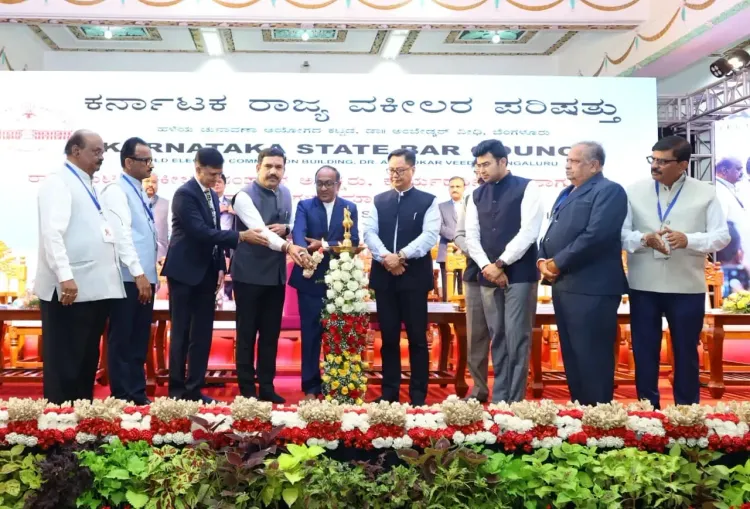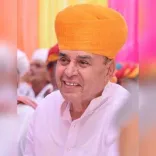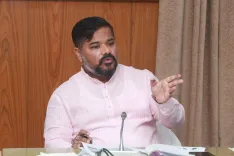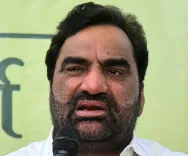Did Union Minister Kiren Rijiju Criticize Retired Judges' Campaign Against HM Amit Shah?

Synopsis
Key Takeaways
- Kiren Rijiju condemns retired judges' campaign.
- Criticism of derogatory language by opposition.
- Emphasis on the political nature of the Vice-President's election.
- Support for proposed law regarding political officeholders.
- Highlighting the importance of integrity in public life.
Bengaluru, Aug 30 (NationPress) Union Minister for Parliamentary Affairs and Minority Affairs, Kiren Rijiju, expressed his disapproval on Saturday regarding the signature campaign led by retired Supreme Court judges against Union Home Minister Amit Shah, labeling it as "inappropriate".
At a gathering in Bengaluru discussing the "Parliamentary System in the Largest Democracy in the World", Rijiju criticized the Congress and other opposition parties.
He stated that this signature campaign, which emerged amidst the Vice-President's election, was "unconstitutional" and "inappropriate".
Rijiju pointed out that the Vice-President's election is a strictly political event and suggested that the actions of these retired judges convey a troubling message about potential ideological bias during their service.
He remarked, "A few retired judges wrote a letter against Amit Shah and started this campaign. They should not have interfered in the Vice-President's election process, which is strictly political," reiterating his stance.
Rijiju also called out the Leader of the Opposition in the Lok Sabha, Rahul Gandhi, and senior Trinamool Congress leader Mahua Moitra, condemning their use of derogatory terms against Prime Minister Narendra Modi and his family.
"Such developments are not in the interest of the nation," he emphasized.
"We represent a party that is democratic in nature and treats opposition leaders with respect. It is inappropriate for the Opposition to use derogatory language against the Prime Minister and his mother," he added.
Rijiju affirmed that the BJP and NDA allies consistently contest elections based on democratic principles.
In contrast, he accused the Congress of blaming the Election Commission of India (ECI) whenever they experience electoral losses.
"What's the point of blaming the ECI when the people are simply not voting for the Congress?" he questioned.
Furthermore, he took a jab at Rahul Gandhi, stating, "Rahul Gandhi has lost three parliamentary elections and is now venting his anger on the country, the people, and the Constitution. If the people aren't voting for you, how is that our fault?"
On a proposed law aimed at removing a Prime Minister, Chief Minister, or Minister from office in the event of a 30-day imprisonment, he described it as "fair and justified".
"If you haven't committed a crime, you will be granted bail. Why the fear? Only those with something to hide are opposing this law," he commented.
He further noted, "The Congress has ruled the country for 60 years. Given the current language and conduct of its leaders, people will never vote them back to power."
During his speech, Union Minister Rijiju elaborated on the distinctiveness of India's parliamentary system.
He highlighted how it diverges from the Westminster model and stressed the necessity of understanding the Constitution and its essence.
He pointed out that India's constitutional framework is a unique amalgamation of legislative, executive, and judicial functions, allowing Members of Parliament to also hold ministerial roles.
In contrast, he noted that the US system does not permit Senators or Congressmen to be Ministers, as Secretaries are appointed separately and are accountable to House committees.
Union Minister Rijiju mentioned that Indian MPs bear a dual responsibility: they serve as lawmakers and also address personal concerns of their constituents who often seek their assistance.
He acknowledged that the high expectations and persistent demands from constituents can be overwhelming and require a careful balance with legislative responsibilities.
He lamented the declining standard of discussions in Parliament, attributing it to evolving times and changing priorities.
Rijiju emphasized the significance of honesty and integrity in public life, citing his own approach to governance as a model.
Additionally, he criticized the media's tendency to focus on sensationalism and controversy rather than on substantive issues and constructive journalism.
He concluded by underscoring the importance of the Constitution and the necessity of ensuring justice for the common people—achievable not only through courts but also through alternative avenues.






